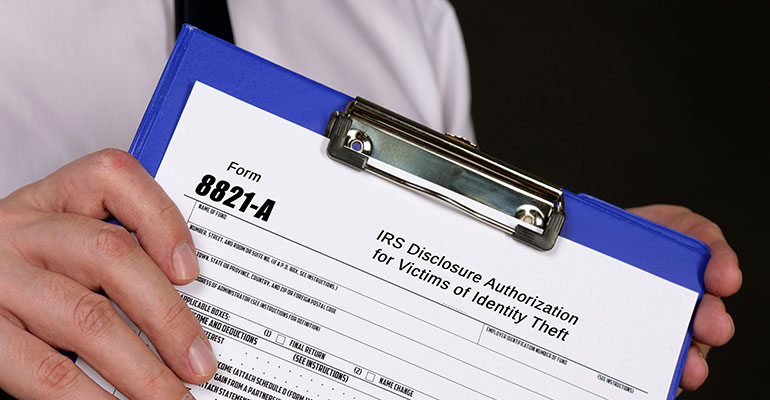
IRS Form 8821 and 2848 are two forms used by taxpayers to authorize another person to act on their behalf regarding their tax matters. These forms allow the authorized individual to receive and review the taxpayer’s confidential tax information, file tax returns, and represent the taxpayer before the IRS. Although both forms serve similar purposes, there are significant differences between them. In this post, we will discuss the key differences between IRS Form 8821 vs. 2848.
Purpose
The primary purpose of IRS Form 8821 is to allow a taxpayer to authorize another person, such as an accountant or tax preparer, to receive their confidential tax information from the IRS. This form grants a limited power of attorney, which means that the authorized individual cannot represent the taxpayer before the IRS, file tax returns, or make any tax payments on their behalf.
On the other hand, IRS Form 2848 is a more comprehensive form that grants broader powers to an authorized individual. This form allows the authorized person to represent the taxpayer before the IRS, file tax returns, make tax payments, and receive confidential tax information on behalf of the taxpayer.
Types of Authorization
IRS Form 8821 authorizes a designated individual to receive confidential tax information from the IRS, but it does not grant them the authority to act on behalf of the taxpayer. The authorized person can only access the taxpayer’s tax information to help them prepare their tax returns or provide tax advice. They cannot file tax returns, make tax payments, or represent the taxpayer before the IRS.
IRS Form 2848, on the other hand, authorizes an individual to act on behalf of the taxpayer. This form grants a power of attorney to the authorized person, allowing them to represent the taxpayer before the IRS, file tax returns, make tax payments, and receive confidential tax information.
Scope of Authority
The scope of authority granted by IRS Form 8821 is limited to the specific tax information requested by the taxpayer. The authorized individual can only access the taxpayer’s tax information for the purposes stated on the form. They cannot access any other tax information or perform any other tasks beyond the scope of the authorization.
IRS Form 2848, on the other hand, gives the authorized person extensive authority. The range of authority covers representation before the IRS, filing tax returns, paying taxes, and gaining access to private tax data. As long as they are listed as authorized on the form, the authorized person is able to carry out any tasks connected to the taxpayer’s tax-related issues.
Duration of Authorization
IRS Form 8821 is effective only for the specific tax period or periods indicated on the form. Once the authorized individual receives the taxpayer’s tax information, they can only use it for the specified period. If the taxpayer wants to authorize the same individual to access their tax information for a different tax period, they need to submit a new Form 8821.
Contrarily, IRS Form 2848 remains in effect until it is revoked by the taxpayer or terminated by the IRS. Unless the taxpayer revokes it or the authorized person withdraws from the representation, the authorization is valid for all upcoming tax periods.
Revocation of Authorization
IRS Form 8821 can be revoked by the taxpayer at any time. The revocation can be made in writing or orally, and it becomes effective as soon as the IRS receives it. Once the authorization is revoked, the authorized individual cannot access the taxpayer’s tax information anymore.
IRS Form 2848 can also be revoked by the taxpayer at any time. The revocation must be in writing, and it becomes effective as soon as the IRS receives it. Once the authorization is revoked, the authorized individual cannot represent the taxpayer before the IRS or perform any other tasks authorized on the form.
Third-Party Designee
Both IRS Form 8821 and 2848 allow the taxpayer to designate a third-party designee who can discuss their tax matters with the IRS. The third-party designee is not authorized to act on behalf of the taxpayer or receive confidential tax information. However, they can provide information to the IRS regarding the taxpayer’s tax matters, and they can receive copies of any IRS correspondence sent to the taxpayer.
Signing Requirements
IRS Form 8821 requires the taxpayer to sign and date the form, indicating their consent to the disclosure of their tax information to the authorized individual. The authorized individual does not need to sign the form.
IRS Form 2848 requires both the taxpayer and the authorized individual to sign and date the form. The form must be signed under penalties of perjury, indicating that the information provided is accurate and complete to the best of their knowledge.
Recordkeeping Requirements
Both IRS Form 8821 and 2848 require the taxpayer and the authorized individual to retain a copy of the form for their records. The IRS may request a copy of the form at any time to verify the authorization.
The main difference between IRS Form 8821 and 2848 is the scope of authority granted to the authorized individual. Form 8821 grants a limited power of attorney to receive confidential tax information, while Form 2848 grants broader powers to represent the taxpayer before the IRS, file tax returns, make tax payments, and receive confidential tax information.
Taxpayers should carefully consider their needs and the tasks they want the authorized individual to perform before deciding which form to use. It is also important to follow the instructions on the form and ensure that all signatures are obtained and that copies are kept for recordkeeping purposes.
